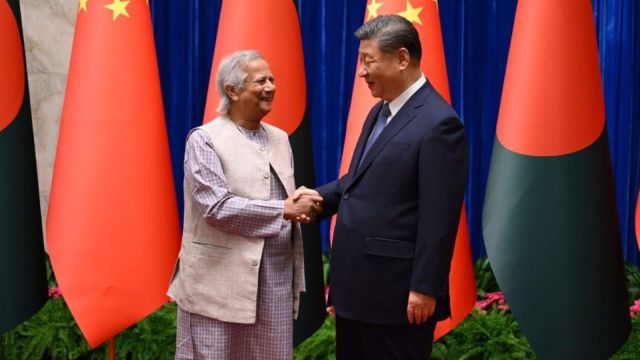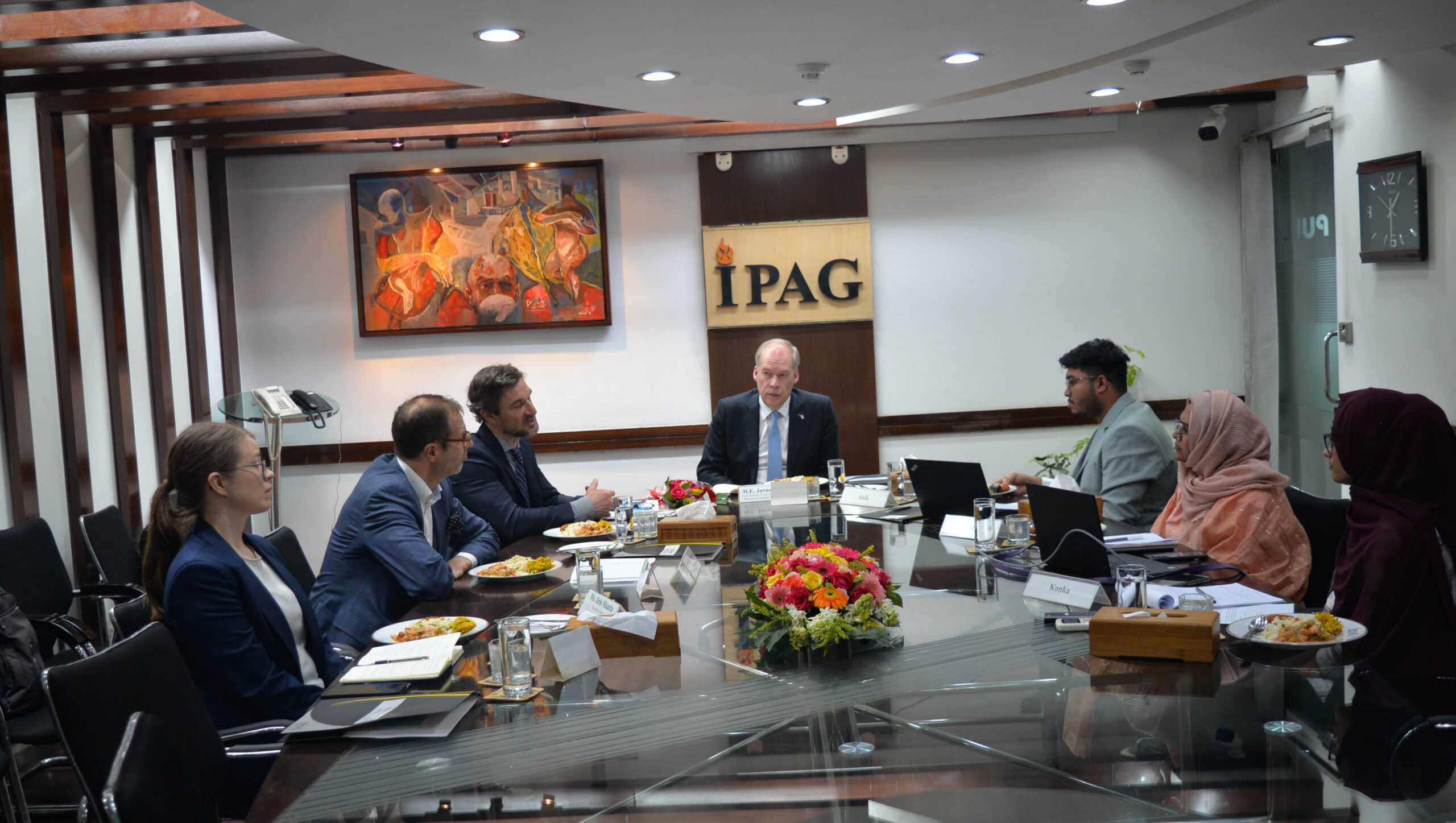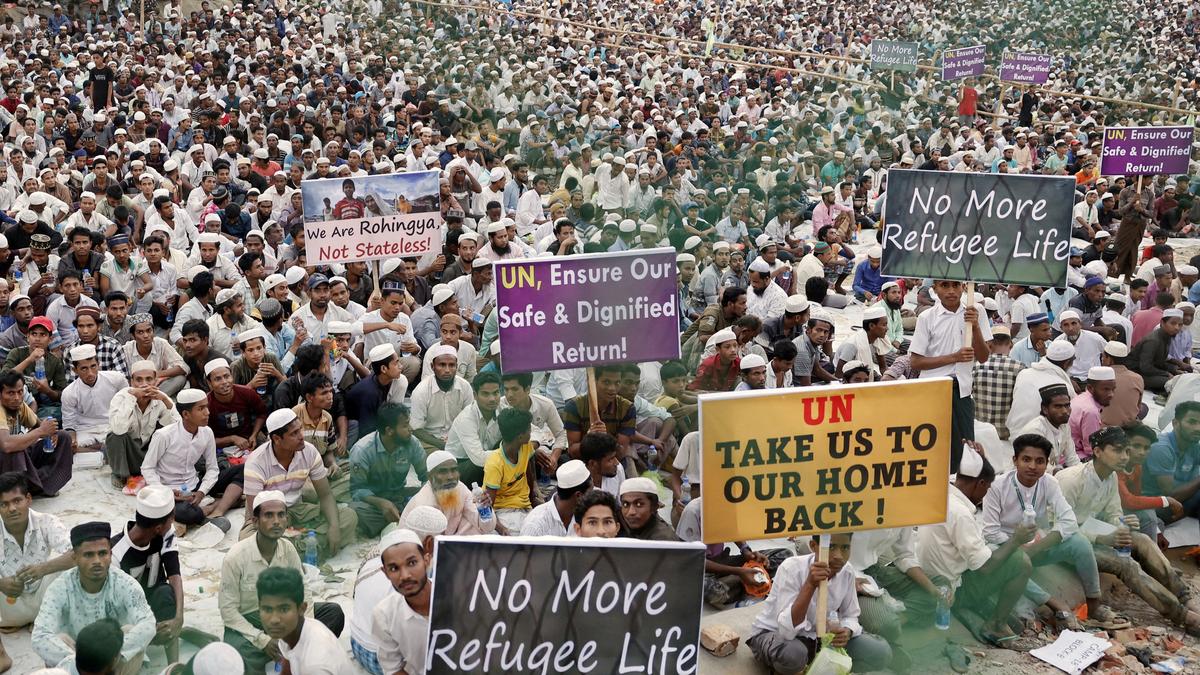Prof. Syed Munir Khasru
The Indian Express
March 31, 2025
https://indianexpress.com/article/opinion/columns/bangladesh-drawing-closer-to-pakistan-china-what-should-india-do-9916244
_____________________________________________________________
In a remarkable gesture, President Xi Jinping sent a special plane on March 26 to bring Chief Adviser to the Interim Government Muhammad Yunus to Beijing, signalling China’s deeper ties with Bangladesh. China has granted 100 per cent duty-free access to Bangladeshi exports and pledged to import more Bangladeshi goods. Bangladesh also secured a commitment of $2.1 billion in Chinese investments, loans, and grants during Yunus’s visit.
Once marked by a strained relationship, Pakistan is now making rapid diplomatic and economic inroads. Bangladesh has eased visa restrictions, trade has surged, direct flights have resumed and even military cooperation is on the horizon. As China and Pakistan build momentum, relations with India, once considered Bangladesh’s closest ally under the rule of the deposed Sheikh Hasina, seems to be struggling to find its footing. How did it come to this?
For nearly two decades, India’s Bangladesh policy was viewed through the prism of Prime Minister Sheikh Hasina being in charge. Hasina ensured stability in India’s northeastern states, cracked down on the cross-border insurgency and granted India transit rights. In return, New Delhi provided unwavering political and diplomatic support, even as Hasina became more high-handed and increasingly unpopular at home.
Hasina’s elections in 2014, 2018, and 2024 were controversial, with allegations of vote rigging and manipulation. The suppression of the opposition and human rights violations fuelled rising anti-India sentiment in Bangladesh. This was due to Delhi being seen as a “friend” of Hasina’s even when her popularity reached its nadir. Hence, when the student-led uprising ousted Hasina on August 5 last year, India had few alternative relationships in Dhaka and was in need of a fresh policy vis-a-vis the new regime.
In retrospect, Delhi should have placed its eggs in more than one basket and cultivated broader state-to-state and people-to-people relationships. There is a lesson in this episode, beyond the current moment about the inherent risks of relying on a single entity to represent an entire nation.
As Bangladesh underwent significant political upheaval, India hesitated. For the first two weeks, Delhi issued no statement beyond calling the situation “an internal matter”. A portion of the Indian media aggressively pushed a dubious narrative, linking the uprising to the Jamaat-e-Islami and Pakistan’s intelligence agency. Shiv Shankar Menon, India’s former National Security Adviser, dismissed this, saying the protests were a popular movement, not a foreign-backed conspiracy. Social media was flooded with videos falsely depicting anti-Hindu violence in Bangladesh. BBC Verify debunked these claims, revealing they were either manipulated or taken out of context. The fallout from Hasina’s ouster triggered emotional reactions on both sides of the border.
India sheltering Hasina and not responding to Bangladesh’s formal request for her extradition to face charges for alleged killings continue to be a bone of contention. Similarly, India’s urge for “inclusive elections” after dismissing the same as an “internal matter” when successive non-participative elections were held under Hasina has been dubbed in Dhaka as “double standards”. Emotionally charged narratives on both sides have been deepening the divide.
Some longstanding issues have festered for years, like the unresolved Teesta water treaty. As a result, Bangladesh’s northern region has been facing severe dry-season water shortages, loss of agricultural productivity, and vulnerability to floods. Despite being a lower riparian country with legal rights under international water law to receive a fair share, Bangladesh’s pleas have gone unheeded. Frustrated, Dhaka turned to China, signing a $1 billion MoU to implement the Teesta Comprehensive Management and Restoration Project, aimed at flood control, erosion prevention, and ensuring water availability during the dry season.
The trade imbalance remains a pressing concern, with Bangladesh facing a substantial deficit. In FY 2023–24, Bangladesh exported only $1.97 billion worth of goods to India, while imports from India soared to $14.01 billion, resulting in a stark $12 billion trade gap. Border security continues to strain ties.
With the upcoming BIMSTEC summit in early April 2025, both nations stand at a crucial juncture. Although a bilateral meeting between Yunus and Indian Prime Minister Narendra Modi seems unlikely, it is precisely in such moments that bold diplomatic gestures matter most.
India cannot afford to press pause on relations with Bangladesh until an election result it finds favourable materialises. The relationship is far too critical. Current tensions require strategic patience and sustained diplomatic effort as stakes are indeed high for both nations.




0 Comments